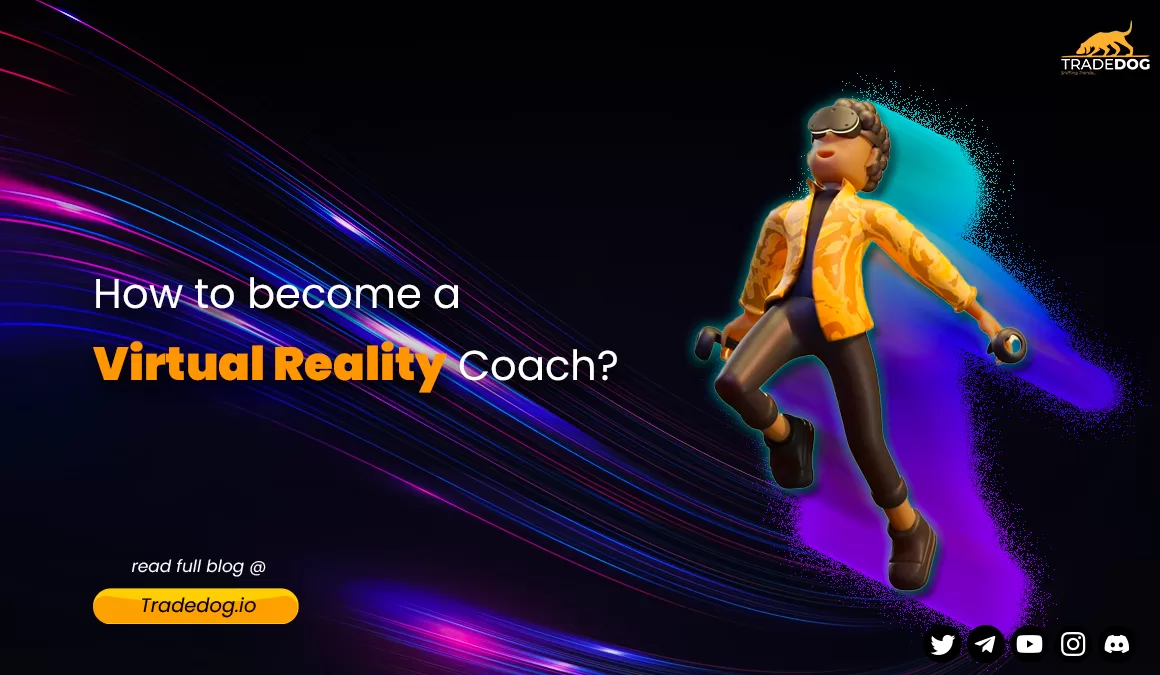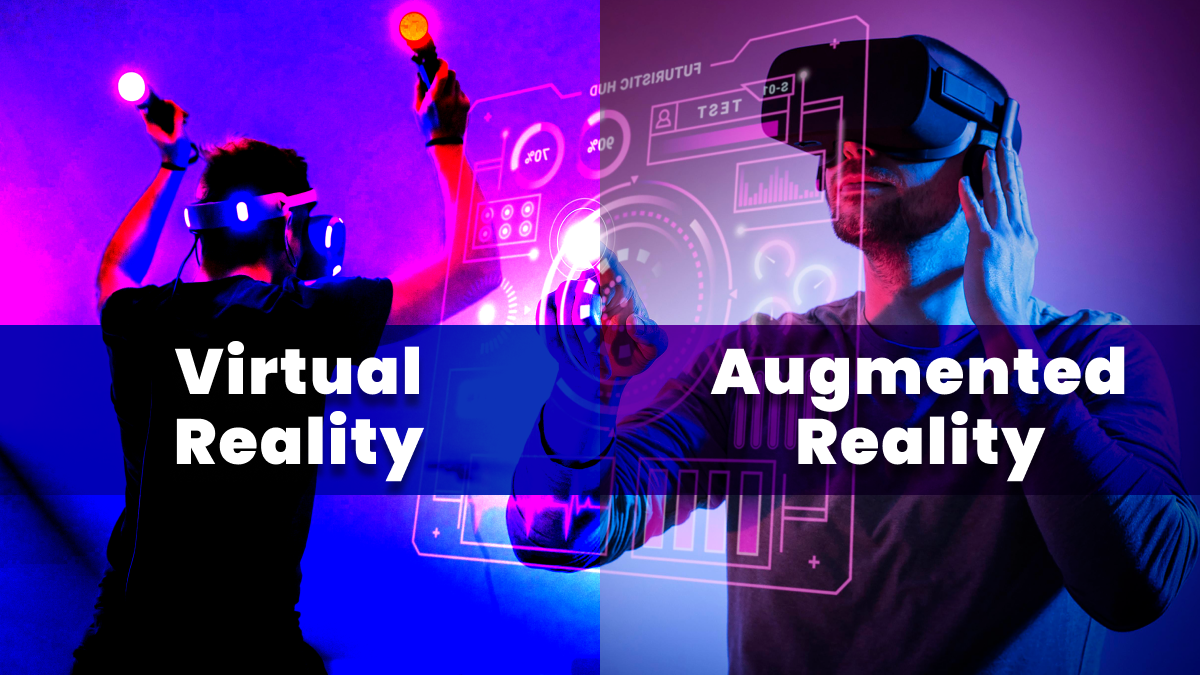Quick Links
What is Virtual Reality Coaching?
Let’s define what virtual reality coaching is – Virtual reality coaching uses virtual reality technology to orchestrate real-life situations and scenarios for people to practice and improve their skills in a safe and controlled environment. Learning via VR gives a unique perspective for clients to engage in learning while they carry out the tasks, allowing them to gain practical knowledge and confidence in various scenarios.
Benefits of Becoming a Virtual Reality Coach
Becoming a virtual reality coach offers several benefits, like :
- Flexibility: As a virtual reality coach, you can work from anywhere literally with just an internet connection. This gives you the option to work from home, your studio or anywhere else.
- Wider audience: Virtual reality coaching can help you reach clients from all over the world, allowing you to expand your customer base and increase your income.
- Higher engagement: It can improve engagement with clients, as it allows for immersive experiences that can help clients learn and practice skills in a more interactive way.
- Personalized coaching: VR coaching can be tailored to meet the specific needs and goals of each client, providing a more personalized experience.
- Increased efficiency: Virtual reality coaching can help clients achieve their goals more quickly and efficiently, as it provides a focused and controlled environment for practice and learning.
- Competitive advantage: VR coaching is still a relatively new field, and hence becoming a VR coach can give you a competitive edge over in-person coaching, allowing you to differentiate yourself and stand out in a crowd.
Understanding the Necessary Skills
Some necessary skills that a virtual reality coach must have :
- Technical proficiency: A VR coach should have knowledge about how to use virtual reality technology, such as headsets and software, and provide effective coaching services.
- Adaptability: Virtual reality technology is evolving at a fast pace, so a virtual reality coach must be quick to adapt and able to learn new skills and technologies as they emerge.
- Creativity: In virtual reality coaching creating immersive and engaging experiences that will help clients learn and grow is important, so creativity is an essential skill for a virtual reality coach.
- Analytical thinking: A virtual reality coach should be able to analyze data and performance metrics to assess the effectiveness of their coaching programs and make decisions.
- Business acumen: As a virtual reality coach, business acumen is important in order to manage your finances, market your services, and build a successful business.
- Interpersonal skills: As a virtual reality coach you should have strong interpersonal skills to be able to connect with clients and create a supportive and motivating coaching relationship.
- Empathy: You should be able to understand and empathize with clients for creating a positive coaching experience and helping clients achieve their goals.
- Communication: You should have good communication skills, so as to explain complex concepts and guide clients through virtual reality hurdles and make them understand the importance of each activity.
Training and Certification
Becoming a Virtual Reality (VR) coach requires a combination of education, experience, and skills. While there is no standard certification for VR coaching, there are some steps that can help you develop the necessary profile :
- Education: A person with qualifications in psychology, counselling or any health/ fitness etc or a related field can be helpful for a VR coach. Along with them, courses in virtual reality technology and its application in various fields can surely enhance the level of competency.
- Experience: Experience working with clients previously, either in person or online, can help in establishing credibility as you have already worked with coaching clients before.
- VR training: It is important to receive training in VR technology and its application in different fields. This training should include the use of VR headsets, software, and applications. You should also familiarize yourself with the ethical and legal guidelines of providing virtual reality coaching.
- Certification: While there is no standard certification for VR coaching, some organizations might offer VR coaching training and certification. For example, the International Coach Federation offers a coaching certification program that includes courses in virtual coaching.
Setting Up Your Virtual Coaching Business
Here are some steps to get started on setting up a virtual coaching business –
Define your niche/ target audience: The first step in setting up a virtual coaching business is to define your niche. Define your areas of expertise, your target audience, and the specific problems you can help your clients with.
Develop your coaching plans: After you have finalized the target audience, you should create coaching plans that will cater for the specific needs of your target audience. The plans should be priced according to the customers and market rate and include clear details of the services offered, the timeline, and the expected results.
Create your website: You can set up a website that gives details of your coaching packages, your experience and expertise. Your website should be professional, easy to navigate, and optimized for search engines.
Set up your virtual coaching platform: There are many virtual coaching platforms available, including platforms like Zoom or Skype, coaching software like CoachAccountable, or online course platforms like Teachable etc from where you can start your coaching and build your audience.
Market your business: Use social media platforms, paid advertising, and content marketing to reach potential customers. Also, offer a free consultation or coaching session to engage with more customers and encourage them to subscribe to your services.
Keep on improving your coaching skills: As a virtual coach, your skills are your most valuable asset. Continuously develop your coaching skills by attending conferences, workshops, and training programs.
Conclusion
In conclusion, virtual reality coaching is an exciting and creative form of coaching that can help people gain practical experience in a secure and comfortable environment. To become a virtual reality coach, you’ll need to gain experience in coaching, learn about virtual reality technology, develop your virtual reality coaching skills, get certified, and build your network. With dedication and hard work, you can become a successful virtual reality coach and help your clients achieve their goals.
Virtual Reality Coach: Frequently Asked Questions
How do I become a virtual coach?
Start by learning about virtual reality technology and building expertise on topics you can coach on, then slowly grow your network.
What degree do you need to work with VR?
No degree is required to work with VR, and although one can always take some technical upskill certifications, anyone with the basic knowledge of using VR technology and using the internet can work with VR.
How do you pursue a career in virtual reality?
You start by gaining expertise in and building your reputation in solving specific problems. From there you move on to finding some clients, marketing yourself and growing your network.











